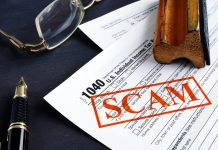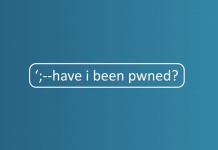

A sufficiently large minority of the U.S. Senate demonstrated their Orwellian allegiance to the gun lobby last week — or their fear of it — by blocking several commonsense measures that would have expanded background checks for gun buyers while imposing a ban on both assault-style rifles and high-capacity gun magazines. The knee-jerk “no” votes were so pervasive that a law imposing stricter penalties on gun traffickers (supported by the National Rifle Association) even got the ax.
Everybody who cares about this issue knows the gun lobby spends a lot of money supporting its friends and targeting its enemies. We know the real cost of easy gun ownership is measured by the innocent lives snuffed out every year by gun violence. Ask the parents of the 20 children who were gunned down at Sandy Hook Elementary School or the parents of the 565 kids who were killed by guns in 2011. Ask the survivors of those who died at the Century Cinemas 16 in Aurora, Colo. They will tell you the real cost of the gun lobby. According to a CBS News/New York Times Poll, 92% of Americans support universal background checks for gun buyers.
So what can we do now? Well, there’s that old standby solution: vote. The NRA happily provides a guide to the “Friends and Foes of Second Amendment Rights” to any like-minded voter who wants to support or defeat their elected representatives. They rate gun-friendly lawmakers in Washington. If you are one of the 92% of voters in favor of broader restrictions on guns and gun ownership, you can use those ratings to vote for new representation. As the New York Times editorial board wrote: “It’s now up to voters to exact a political price from those who defied the public’s demand.”
I’m not that patient. In fact, I generally find instant gratification isn’t fast enough, so as I reflected recently on the topic of rating politicians, I had an epiphany (some might call it a “revenge fantasy”) that took its cues from a business risk assessment tool that I know a lot about: the credit score.
The credit score is a three-digit number produced by an algorithm that distills information from credit reports. Many in the financial services sector consider it to be a pretty accurate risk assessment tool, permitting tens of thousands of credit extenders and service providers to analyze millions of applications and reach quick decisions about the credit-worthiness of individuals.
My thought or flight of fancy: Maybe we should create a risk assessment tool for gun worthiness. In all seriousness, shouldn’t all Americans — especially those who manufacture and sell guns — welcome the prospect of better predictability given the news of late?
A credit score comprises five weighted components:
- Payment history (35%)
- Utilization: the percentage of your available credit that you are using (30%)
- The age of your credit history (15%)
- The mix of your credit accounts (i.e., mortgage, installment and revolving accounts) (10%)
- The number of times you applied for credit recently (10%)
I’m no gun expert, but surely the above could form the basis for what we could call the gun score.
Now before we go any further, I have to say that were this idea to take root, the NRA might find itself lobbying for expanded background checks.
What might it include for would-be gun owners?
- Criminal record (35%)
- Mental illness (30%)
- Credit score/employment history (15%)
- Purpose of gun ownership (10%)
- Number of guns owned (10%)
This is a one-off list thrown together on the fly by a non-expert. Doubtless, if risk assessment experts were to apply themselves, the questions would become much more intrusive.
I spoke with Dr. Steven Skiena, a professor of computer science who focuses on algorithms and data analysis at Stony Brook University. He thinks a gun score would be hard to design and implement, but that it’s possible.
“It becomes difficult to build up some kind of model that really has discriminating power,” Dr. Skiena told us. “With guns you have a large number of people who use guns safely and a very small number of people who don’t. This is a little bit different from the world of credit risks, where say 5%-10% of people default on loans. I’ll guess that the number of people who shoot other people with licensed guns is a tiny fraction of 1%. You’ve got a very large haystack and you’re trying to detect this tiny needle.”
So, I guess that means we need to expand the list of criteria. How about this?
- Criminal/safety record: Have you been arrested and/or charged with a crime or misdemeanor? Were you convicted? Are there any outstanding warrants for your arrest? Have you ever injured yourself, or another, with a gun or gun-related product? (35%)
- Mental illness: What sort and when? Do you have a chronic or terminal illness? Were you abused, raped or bullied? Have you ever seen a psychotherapist or been prescribed an antidepressant or antipsychotic? Have you ever been required to see a professional or to attend classes specifically to deal with anger management? Have you ever expressed on a video, or in writing, a desire to kill someone or espoused racial intolerance? (30%)
- What is your employment record and credit score? Have you filed for bankruptcy? Have you had medical debts sent to collection agencies? Do you have a history of late payments to utilities (including cellphones), or broken contracts? (15%)
- Do you already own guns? For what purpose did you buy them? (10%)
- How many guns do you own? (10%)
Seems kind of extreme if you ask me, and there’s likely a great potential for false positives. Also, lest we forget, the right to credit is not guaranteed in the Bill of Rights.
I’m not suggesting that gun ownership should be abolished, nor am I passing judgment on the NRA’s interpretation of the Second Amendment. I’m simply saying this: Rather than trying to create something as Byzantine as a gun score, wouldn’t it be more reasonable and less intrusive to pass a law that requires expanded background checks for gun buyers and bans on assault-style rifles and high-capacity gun magazines?
Originally posted at the Huffington Post.









